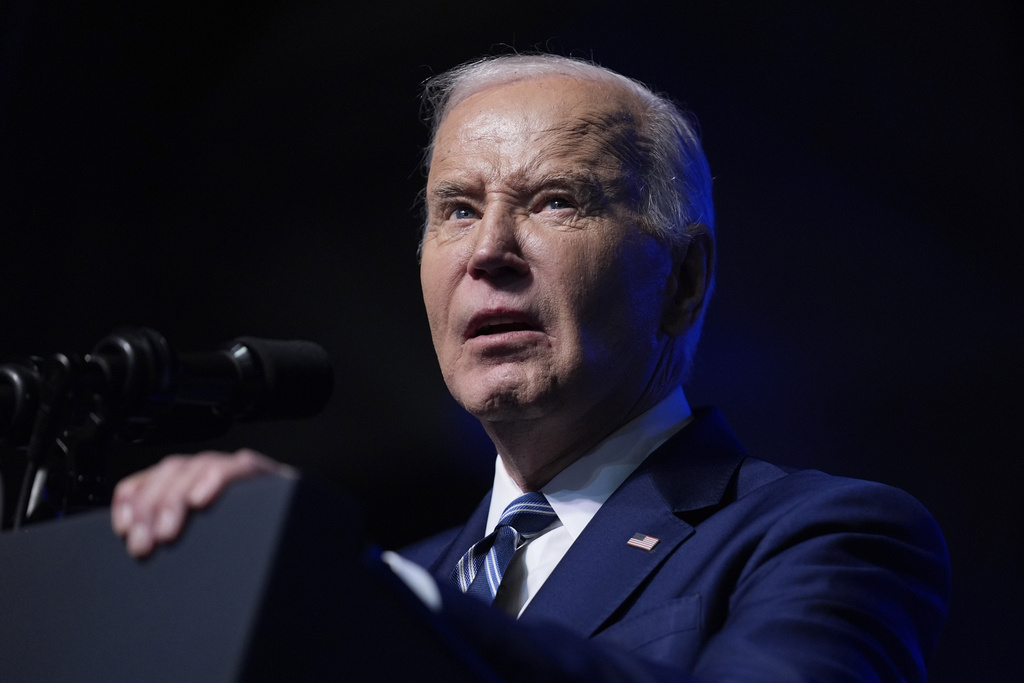

President Joe Biden‘s historic action on marijuana will likely have a significant impact on the 2024 election, potentially blunting the president’s slide with young voters and even earning him support from independents.
Biden ordered the Department of Health and Human Services in late 2022 to study the effects of reclassifying marijuana from a Schedule I to Schedule III drug, which would remove it from the ranks of heroin and cocaine and place it alongside prescription-available treatments, including testosterone and ketamine.
And, earlier this week, the Department of Justice said that Attorney General Merrick Garland had “circulated a proposal to reclassify marijuana,” paving the way for the new rulemaking process. The development comes as the president is making a concerted effort to address issues particularly important to young voters, including student loan debt forgiveness and clean climate policies.
Still, Biden’s grip on young voters, a demographic he carried by more than 20 points in 2020, continues to slip amid Israel’s war in Gaza, with large-scale protests and counterprotests breaking out on college campuses across the nation.
Some Biden critics claim that marijuana rescheduling is a political move targeting those same young voters ahead of the election, yet White House press secretary Karine Jean-Pierre argued Tuesday that the president is simply doing what he promised voters he would do on the 2020 campaign trail, despite declining to confirm the process was moving forward.
“This is something that the president talked about during his campaign, and he said no person, no American who possesses marijuana — only possesses marijuana — should go to jail. It is affecting communities across the country, including communities of color,” she told reporters. “And so this is why he asked HHS and Department of Justice to look into this, and that’s what they’re doing.”
“The president has been campaigning and delivering on exactly these policies for four years, all of which matter deeply to young people and the entire coalition that sent President Biden to the White House, and it’s exactly why he’ll be re-elected in November,” Biden campaign spokeswoman Lauren Hitt added in a statement.
Ultimately, Democratic operatives familiar with Biden’s campaign strategy hope this move will help him in the election but say that is only a secondary consideration.
“President Biden is moving forward with this historic action not because it could help him in November, but because it’s simply the right thing to do. Research has demonstrated the medical properties of cannabis, and it’s about time the nation reflects that,” one strategist told the Washington Examiner.
A swath of Republicans, who generally support marijuana legalization at a significantly lower clip than the general public, have knocked Biden’s proposal, including the House Republican Policy Committee which argued in a February brief that marijuana is directly associated with violent crime spikes and a drop in workforce productivity.
“This is a naked political ploy Sleepy Joe, and one that voters will see right through,” a Trump campaign veteran told the Washington Examiner. “Think about this. Biden’s running mate, top cop Kamala Harris, sent thousands of black men to jail in California for marijuana offenses, and now they just want to flip the switch? Voters won’t buy it.”
It remains unclear how former President Donald Trump will handle marijuana on the 2024 campaign trail. In a 2023 interview with Newsmax, Trump claimed that marijuana “does significant damage, and yet, from a voting standpoint, it’s a pretty popular thing.”
Trump’s campaign did not offer a comment on the issue.
The politics of decriminalizing marijuana certainly back Biden’s action. Polls conducted in the past six months by both Gallup and Pew Research showed more than 70% support legalizing marijuana for medical and recreational use. Gallup’s poll additionally showed 79% support for voters under the age of 35.
CLICK HERE TO READ MORE FROM THE WASHINGTON EXAMINER
Furthermore, marijuana is already legalized or decriminalized in a number of critical battleground states — Arizona, Georgia, Michigan, and Nevada — and rescheduling the drug at the federal level would allow marijuana-based businesses greater leeway in deducting business expenses in their federal filings. Four states, Florida, Idaho, Nebraska, and South Dakota, will have some form of marijuana legalization initiatives on ballots this November.
Though hardly a definitive data point, the White House also saw the popularity of marijuana as an election issue in the wake of Biden’s March State of the Union address. The post quote-tweeting the president’s claim that no one should be jailed for simple marijuana possession saw more likes and engagement than similar posts touting Biden’s proposals on gun violence, green energy, and rewriting the tax code.



